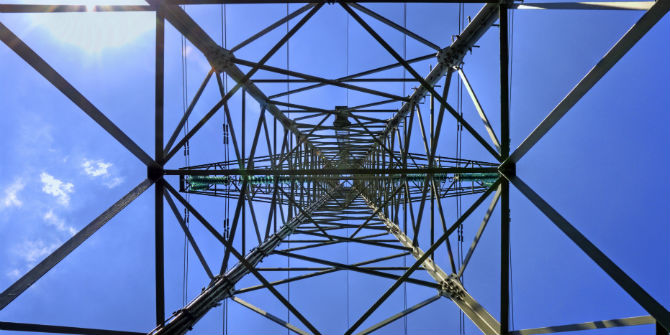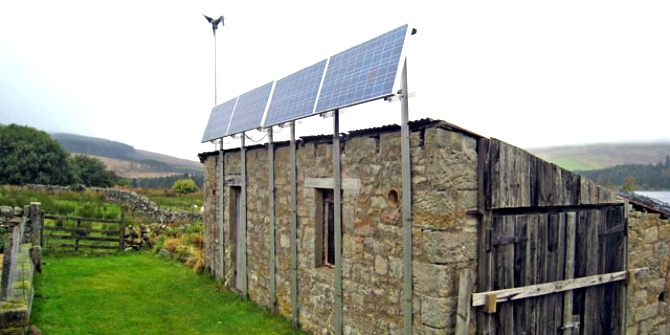If Brexit leads to a withdrawal from the EU’s internal energy market, the UK’s unwillingness to cooperate with its neighbours will come at a very high price, warn Richard Green and Joachim Geske (Imperial College Business School).
Amid the multitude of details that still need to be negotiated about the UK’s future relationship with the EU, its presumed exit from the internal energy market is a particularly important one. Exiting this highly beneficial arrangement could come with an unnecessary increase in the cost of electricity and hinder the UK’s decarbonisation efforts.

From a trading perspective, the internal energy market creates a lot of benefits for all involved by ensuring the most electricity possible is sent from lower-priced markets to higher priced markets. If it’s a sunny day in France and the country’s solar network is operating at maximum capacity, the UK can purchase excess power at a beneficial rate.
In coupled markets, such as the arrangement the British electricity market currently has with France, information about how much electricity costs in both regions, as well as how much networks are willing to pay for electricity, is released to energy traders at the same time. Traders make an informed decision as to whether to buy or sell, and computer algorithms automatically handle the shifting of power from lower to higher priced markets. The only limiting factor is the transmission infrastructure available.
The alternative is how things were before the internal energy market. Traders know the price of electricity generation and how much consumers are currently willing to pay for it in their own market, but don’t have a clear idea of how things are on the other side. As a result, they will sometimes “buy dear” and “sell cheap”, moving electricity to the country where it is less valuable.
Our recently published research sought to estimate the additional costs that would accompany leaving the internal energy market – a “Hard Elecxit”. Compared to a “Soft Elecxit” (where the current system is maintained), we estimated the increase in inefficiencies would result in an increase in the cost of generation between the two countries of €692 million a year – two per cent of the wholesale market value – by the year 2030. This cannot be avoided by building more interconnectors, as an increase in capacity would only present more opportunities for traders to make mistakes.
The scale of the costs of a Hard Elecxit depends on what happens to the mix of power stations in each country. France might retain more of its low-variable-cost nuclear capacity, making low prices common. Trade then would be more valuable, making disrupting it even costlier. In this scenario, a Hard Elecxit would cost the two countries approximately €2.7 billion annually by 2030.
If the UK drastically slows its decarbonisation initiatives and abandons its carbon tax, British and French power prices would converge, making trade less valuable and disrupting it less expensive. But in most of our scenarios, Britain is a net importer of electricity, and a Hard Elecxit means British firms and households would pay more for their power – by €2.4 billion a year in our worst scenario.
As renewable energy generation progresses, the benefits of shared energy infrastructure become increasingly apparent. After all, you can’t rely on perfect conditions for renewables everywhere. But should the UK leave the internal energy market, decades of progress towards controlling the cost and supply of power will be lost.
This post represents the views of the authors and not those of the Brexit blog, nor LSE. A longer version originally appeared on IB Knowledge.






France is 78.8% nuclear- so it is likely it will be nuclear imported energy until Rolls Royce get their minature nuclear power plants online ( yes you know the UK are actually leaders in many technologies, not some backwards failed state that vyed for independence from the stand over EU )https://www.rolls-royce.com/products-and-services/nuclear/small-modular-reactors.aspx#/ https://www.bbc.com/news/business-51233444
No reason why in not the energy sector ( like in many others) the UK can do it alone. even home solar/ battery combinations.
sorry, i didnt have to go into some long winded speil to get a point across with charts and graphs etc.